B"H
E*TORAH
A Torah Thought for the Week
Published and Transmitted by
Chabad of
25 Tammuz, 5766 –
Candle Lighting Time
Friday, July 21 at
Shabbat ~ Shacharit Services at
Shabbat ends July 22 at
Torah Portion: Matos-Masei (Numbers 30:2 - 36:13)
Ethics of our Fathers: Chapter 1
Blessing of the new month
Rosh Chodesh Menachem Av: Wednesday, July 26
*****
WHY IS
By Simon Jacobson
Consider and reflect upon an astonishing thing: Everything happens in its time for the good. The portions which we always read during the Three Weeks, Matos, Massei and Devorim, discuss the victory of Israel over the nations and the division of the Land – the diametric opposite of the terrible events that happened during this time . Sometimes we also read Pinchas during this period, which discusses all the holidays… related to the fact that in the future “these days will be transformed into joy and gladness and holidays” (Zechariah
As the Middle East enters a second week of war with Israeli troops expanding their operations in Southern Lebanon launching a ground assault against its sworn enemy Hezbollah – and our hearts and prayers go out to all innocent lives being lost – its hard to ignore the connection to this period in time when we remember the war destruction of Jerusalem two millennia ago by the Babylonians and then again by the Romans.
No one is disputing the fact that the Hezbollah attack against Israel – and indeed the entire existence of the Hezbollah – is founded on the principle of conquering Israel and is being fueled, funded and armed by Syria and Iran – the location of ancient Babylon, which at its height included the land that is now Syria and a large part of Iran (Persia).
After 2428 years since the Babylonian destruction and 1938 years since the Roman destruction of the
And what can we do about it?
As we compare this most recent conflict with previous ones, striking parallels and differences stand out.
The most obvious parallel is the never-ending battle over this small piece of geography called
But what is far more striking – and disturbing – are some of the unique differences that distinguish the current battle from previous ones.
One of the most obvious issues today is the lack of strong leadership and clear moral direction. Yes, every normal person or country agrees that
We still hear questions whether
Is it possible that
In such a hostile environment what good reason is there for Jews to live in
Is it possible that many are wondering the same about the Jews in
Another unprecedented factor in the current battle is the new type of war being fought. Previous wars involved defined nations, with defined borders and clear targets. A war against terrorists – whether it is in
Why is it that Israel’s victory in 1967 against four major countries, Egypt, Syria, Jordan and Iraq took only six days, and now their battle against one upstart terrorist organization is already over 9 days old and far from ending?
Some would argue, that a war against defined countries is far easier to fight than one against terrorists embedded in tunnels and caves within a countries infrastructure, hiding behind civilian shields, with arsenals dug in beneath hospitals and schools. Other may contend that the six-day war was A Divine miracle.
Another factor may be that it is far easier to win a war when there is strong leadership, and an army passionately motivated by a defined vision and goal – as it was in the war of 1948 and 1967. Does that passion exist today?
Years of slow-bleeding battles and relentless terrorist attacks have worn down many people. The ultimate question is this: Why in the first place are Jews living in a hostile neighborhood?
And even if you have an answer, what is the game-plan? How will this all end?
Questions abound. Many questions indeed.
But we are never abandoned in our questions and doubts. The Jewish people have been here before. Throughout their long history of persecution, their ultimate solace and strength came from the Torah, called the Torah of life – a blueprint to face every challenge in life.
During the Three Weeks of destruction we read in the Torah chapters that address the issues swirling around Israel and Jerusalem under siege – as the Shaloh writes in the opening quote of this article: The portions which we always read during the Three Weeks, Matos, Massei and Devorim, discuss the victory of Israel over the nations and the division of the Land – the diametric opposite of the terrible events that happened during this time .
Barely a consolation, yet the battle over
This Shabbat we also bless the month of Av. Av consists of two letters: Alef and bet – an acronym for the two nations that destroyed the two temples: Adom (the
Our troubles in the
So what does all of this have to do with current events? How do historical roots help us deal with our present challenges?
The three chapters we read during these Three Weeks contain some answers:
Pinchas – Healthy Passion
Pinchas is the only zealot ever condoned in the Torah. Pinchas took a stand against a public atrocity and killed the perpetrators, consequently saving thousands of lives. Pinchas is subsequently rewarded with the “covenant of peace.”
What does this teach us about modern day zealotry and its dangers? Haven’t we learned our lessons over history of the grave destruction perpetrated in the name of G-d by religious extremists?!
As discussed at length in a previous article (Religious Violence), Pinchas was the ultimate model of a peaceful warrior: When confronted with cruelty some people shy away in fear, others become morally ambivalent and yet others become radical zealots, mercilessly killing innocent people in the name of (distorted) faith.
Comes Pinchas the man of peace and tells us that there is another option: No extremes, no bringing in your own personal prejudices and feelings of aggression or passivity, violence or comfort zones. Pinchas teaches us simple selflessness to protect and defend innocent lives. Zealousness – but in peace.
What we learn from Pinchas is the exact opposite of killing in the name of religious zealotry. Violence against other people, especially innocent ones, can never be tolerated – no matter what its cause. Any justification of violence, whether it is in the name of religion or in the name of fighting for a cause, is unequivocally deplorable and goes against the laws of G-d. Anger and murder resulting from religious feelings is perhaps the most dangerous of all, because the “holy war” helps mask the venting of personal aggression.
On the other hand, Pinchas teaches us, just because religion has been abused and used to perpetrate atrocities we shouldn’t fall to the other extreme of not fighting for any values. We must never lose sight of right and wrong, but at the same time we must learn from the past how to fight for it with selfless passion.
What is needed today is passion – but guided by humility. G-d – but guided by love and compassion. We need a zealot today. A true Pinchas that will rise and defy conventional thinking. Not a murderous zealot but a zealot of peace.
Today we are called to join forces in a zealous and passionate against all form of extremism and violence, including those perpetrated in the name of religious zealotry. To counter the passion of misguided souls ready to blow themselves up, we need to zealously defend and promote the Divine principles of justice and peace – and all in the spirit of unity and love fueled by selflessness.
Matos-Massei – Fortitude in the journey
“Matos” (in Hebrew) are stiff, firm rods. “Massei” are journeys, referring to the forty-two journeys of the Israelites through the Sinai Wilderness on their way to the Promised Land.
Life is a journey – a series of journeys – toward the Promised Land. Indeed, the Baal Shem Tov explains that each of us goes through 42 journeys in our lives.
The journey toward the Promised Land (even when we may be living there) is a difficult one – as witnessed time and again throughout history. We therefore need the “Matos” in our “Massei” – an unwavering fortitude, based on deep faith that gives us the relentless power to forge ahead despite regardless of the adversary.
Life can be difficult, very difficult. The only power to counter all our hardships and enemies comes from a profound, unwavering, connection to knowing the purpose of our lives and knowing without a shred of doubt that our fight is just; an absolute, unbending (“Mattos”) moral certainty in our calling, and the resulting absolute determination to see the journey through.
Where do we get this fortitude? From
Devorim – Divine words
“These are the words which Moses spoke…”
The fifth book of the Torah documents the words that Moses spoke to the people in the last 37 days of his time on Earth: “These are the words which Moses spoke to all
Moses was the ultimate leader. Knowing that he has a short time to live, and recognizing the difficult challenges laying ahead, Moses – as a true leader – delivers his final words in order to imbue the people – then and in all generation to come – with the strength and confidence to forge ahead and tackle every possible issue. Moses examines the events that occurred over the last 40 years since they left
More specifically, Moses reviews the difficult journey of the Jewish people toward the Promised Land and reaffirms the reason for their journey – to forge an invincible bond with G-d that will empower the people to transform the material universe into a Divine home. Moses offers the Jewish nation strong words of encouragement and direction that by holding on to their connection to the Divine they will be able to face any challenge, no matter how difficult.
Moses’ words live on forever. Especially in time of war and challenge we need the powerful, unwavering words of Moses to infuse us with hope, courage and direction.
Above all, Moses’ words state the ultimate – and only – justification for the Jewish presence in
“Behold, I have set the land before you: go in and possess the land which G-d swore to your fathers, to Abraham, to Isaac, and to Jacob, to give to them and to their seed after them” (Deuteronomy 1:8).
“
And the end game?
“G-d will then bring back your remnants and have mercy on you. G-d will once again gather you from among all the nations where He scattered you… bring you to the land that your ancestors occupied. G-d will be good to you and make you flourish even more than your ancestors” (30:3-5).
Meanwhile – Moses concludes – “be strong and brave” (31:6).
It’s amazing that after all these years the secret to redemption eludes us but still remains in our hands: “
Torah study and charitable righteous deeds will redeem
How much longer will
Priorities and Price Tags
Is it the money or the man, the cash or the kids? Of course, no one would ever admit to putting money ahead of their children; but is it not an all too common phenomenon? Aren’t most parents, even good parents, guilty of making that mistake now and then?
In this week’s Torah portion, the Jewish People are preparing for the conquest of Canaan and the allotment of the Promised Land amongst the twelve tribes of
They had abundant herds of livestock and the land east of the
Immediately, Moses chastises them and corrects their mistake. “Build for yourselves cities for your small children and pens for your flock.” Moses turns around their sequence, putting the children ahead of the animals.
Rashi observes that these tribes were more concerned about their money, i.e. livestock, than they were about their sons and daughters. Moses needed to give them a lesson in values and priorities. Put family first. Possessions come later.
The veteran American spiritual leader, Rabbi David Hollander, once told me the story of a fellow who somehow managed to get himself locked in inside a big department store after they closed up for the day. To compound the problem, it was over a holiday weekend. When all his attempts to get out proved futile, he decided to give vent to his frustrations by taking revenge on the store management. He spent the time of his incarceration swapping price tags on the merchandise.
The result? A mink coat was now priced at $29.99, a necktie at $999.00. Furniture was going for the price of peanuts, the latest hi-fi for a song, and a set of underwear was absolutely unaffordable! Imagine the chaos when the store reopened.
The question is, are our own price tags correctly marked? Do we value the things in our own lives correctly? Are our priorities in order? Or do we too put the cattle and the sheep -- the car and the office -- ahead of our children?
How many workaholic husbands have told their wives, “Honey, I’m doing it all for you and the kids.” But the businesses we are busy building for them actually take us away from them in the most important and formative years of their lives. Rightly has it been said, “the best thing you can spend on your kids is not money but time.”
I’ve seen many people become “successes” over the years. They achieve professional success, career success, business success, growing their fame and fortunes. Too many in the process have become family failures. At the end of the day, our deepest satisfaction in life comes not from our professional achievements but from our family -- the growth, stability and togetherness that we have nurtured over the years -- what our Jewish parents and grandparents simply called nachas.
To paraphrase the sixth Lubavitcher Rebbe, Rabbi Yosef Yitzchak Schneersohn, “Jewish wealth is not measured in property portfolios or stocks and bonds; true Jewish wealth is being blessed with children who walk in the ways of G-d.” For that, we need to be there for them and with them.
A congregant of mine once walked up to me and proclaimed, “Rabbi, I am a millionaire!” I knew the man to be of modest financial means but he immediately explained, “I’m a millionaire in nachas!”
Amen. I wish it upon all of us
By Rabbi Yossy Goldman
Have a great week & Shabbat Shalom!




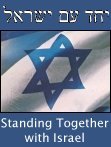

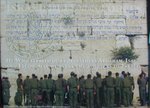

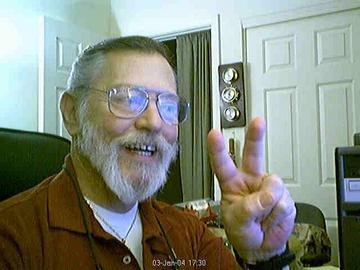





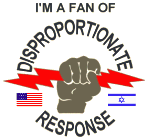






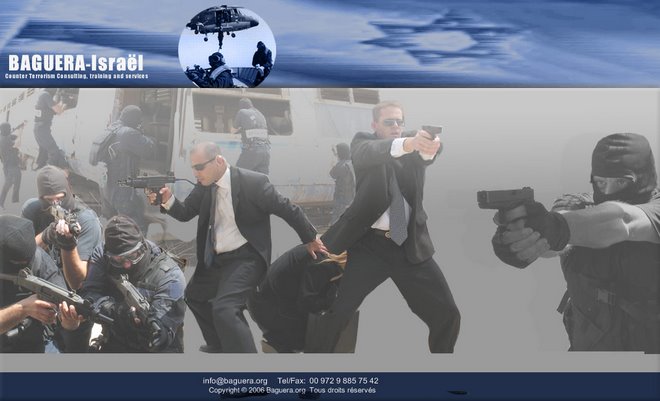



No comments:
Post a Comment